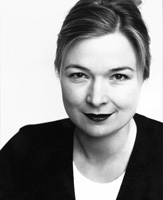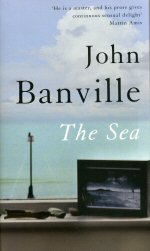There can be no rule according to which anyone is forced to recognize anything as beautiful.
The judgement of taste is based on the feelings of pleasure but also claims universal validity – yet judgement of taste cannot be proven since they do not rest on concepts or rules.
To Kant pleasure can be communicable only if it is based on a state of mind that is universally communicable. Since this judgement isn’t connected to concept, it must connected to ‘cognition in general’ as opposed to a particular cognitive state of mind - .
The judgement takes the form of a conceptual judgement, since we speak of beauty as if it were a property of things and say ‘the thing is beautiful’.
I’m not sure that this has led me any further in my search for knowledge:
- What does he mean by subjective universality?
- How can anything be communicable without being based on concepts?




 Doug Aitken: still from Electric Earth, 1999.
Doug Aitken: still from Electric Earth, 1999.  The way Banville uses language is amazing, and extremely challenging for one not having English as her first language. But the text, full of small sentences of poetry, makes the effort worthwhile & advisable.
The way Banville uses language is amazing, and extremely challenging for one not having English as her first language. But the text, full of small sentences of poetry, makes the effort worthwhile & advisable.